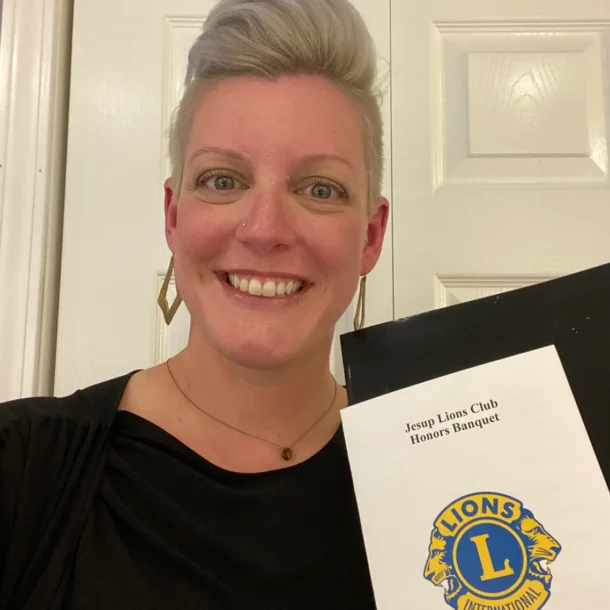

When I was thinking about the month of February and what topic made sense to address, that of Love came to mind because of Valentine’s Day, which led me to thinking more about the Love Languages and their use in leadership development and self-awareness. This may not be the first assessment someone would think about when it comes to leadership BUT leadership is relational. Something I feel the need to preach more and more. We have to be able to connect with and rely on and support others, especially those we interact with regularly. The love languages are not just about dating, being married or single, but can be about simply connecting better with others. Love is about the relationship. We cannot do this thing called life alone, so even more reason to rely on the relationships we have or need to create.
According to the 5 love languages website, “Relationships don’t have to be complicated.” I could not agree more, though they are often complex. Different people with different personalities give and receive love in different ways…hmm…who would have thought! It all goes back to knowing and understanding yourself and then sharing what you need with others.
Just as we give and receive love in different ways, a good relationship means different things to different people. However, good relationships generally involve two people who respect and can communicate with each other, and have equal rights, opportunities, and responsibilities.
Leaders with strong, trusting, and authentic relationships with their teams know that investing time in building these bonds makes them more effective overall. Effective leaders know that leadership is relationships, and those with poor relationships with their teams will see performance suffer.
The relationship theory of leadership focuses on leaders who are mainly concerned about their interactions with others. They are often mentors for employees, scheduling time to talk to them and working to meet their needs. A great leader uses these relationships to work with and influence others to achieve common goals and build a shared vision. This skill can be an important aspect of team-building and allow leaders to create meaningful change.
A leader may be able to provide shared vision and supervision; however, leaders must develop a relationship with the people they inspire to follow them. Successful leadership relationship inspires people to become more than they imagined they could be and achieve more than they ever thought they could.
A professional relationship is an interpersonal connection between two or more people in a place of business. Professional relationships are usually more formal than relationships that exist outside of work. These expectations help keep personal issues and situations from interfering with business operations.
What it comes down to is that people are what make or break our careers. Building and maintaining professional relationships not only assists you in the job search or when looking to grow within your organization, but it also brings a sense of satisfaction and joy to your career.
When you have relationships skills, you build better relationships more easily, and as a result, you enjoy spending time with others. Strong connections also enable you to engage in activities with the people you care about.
A few suggestions for building relationship in the workplace are:
- Understand and own your strengths and weaknesses.
- Schedule time to develop relationships.
- Ask questions and listen.
- Offer assistance.
- Know when to ask for assistance.
- Appreciate each employee’s role.
- Keep your commitments.
- Be present.
To further build relationships and figure out the best way to do so is to play to the needs/wants of the other person since we all need/want different things. The Love Languages break down into five ways people like to connect:
Acts of Service – action speaks louder than words
Receiving Gifts – receiving a heartfelt gift
Quality Time – giving undivided attention
Words of Affirmation – using words to affirm other people
Physical Touch – nothing that speaks more deeply than physical touch
While at face value some may not be quickly apparent how they make sense in the workplace, it does offer a great starting point to evaluate what you need and recognize what others are looking for.
Take the Love Languages quiz here https://www.5lovelanguages.com/quizzes/love-language/
Here are some further things to consider when focusing connecting with others based on their Love Language:
Acts of Service
When someone does something for you, it shows that they want to show effort to help. It can also prove to the other people on the team that they’re willing to be a team player. On the other hand, there may be team members that never volunteer to do the hard or extra work, which can lead the team to feel like that person doesn’t care or doesn’t want to be a part of the team. How might you be able to make someone’s life easier by completing one simple task?
Receiving Gifts
Gifts can show someone is thinking of you or thought of you when they saw something. This doesn’t always have to cost money but perhaps can help a person do their job or life easier. Think of. a podcast or article you see and pass along. This is one way of showing you recognize what is important to that person and acknowledging their role on the team.
Quality Time
People appreciate being listened to and heard. They want the people they spend time with to really understand them. One-on-one time can also help you build the relationship with that person further. This may mean going out of your way to invite someone to lunch or coffee, stopping by their office, or setting up a Zoom or phone call with them. This could also come in the form of respecting the time of your colleagues and choosing to do something yourself to give them a bit of their day back.
Words of Affirmation
Often people like receiving positive feedback but even more important is the why behind the feedback so it doesn’t feel hollow. Get specific about why someone did a good or poor job. Try infusing some words of affirmation in your team member’s day to build the relationship and make them feel good.
Physical Touch This should be evaluated a bit differently in how you go about it in the workplace. The ultimate goal with this is connection. Showing recognition of a colleague’s emotional state is what is important here. What do you really know about them? Get to know them more personally as well as professionally since often people find it difficult to separate the two. Checking in on feelings and self-care are especially important. How are they allotting their self-life-work passion units? Can you help them be accountable to that? Team members will be more willing to come to you when needed if they feel connected to you.
Use the love languages to establish connection and relationships with your co-workers. Learn which is the most impactful for each person and then focus in or ask if they’ve taken the quiz and make note of their preference and get going! Remember leadership is about continued learning about yourself and others as a way to build connection and relationships.

